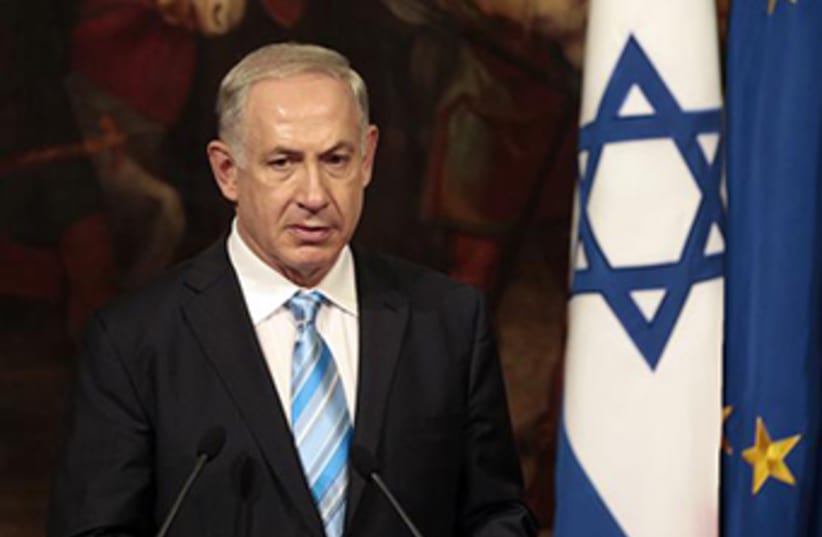Netanyahu emphasized that settlement evacuation deals in the past have not resulted in security for Israel.
"The settlements issue needs to be resolved for peace and we intend to do so, but to say it's an obstacle to peace - when we left Gaza and handed it over to the Palestinians, we didn't get peace," he said. "We got a base for terrorists backed by Iran."
Chancellor Angela Merkel has voiced her opposition to Israeli settlement policies in the past as a roadblock to peace and has called on Netanyahu to slow down settlement construction.
In response to a question on this snag in German-Israeli relations, Netanyahu told ZDF that even in the closest families, there are disagreements. "Even in the closest families there are disagreements," he said, adding that the Germans are "very very good friends."
Merkel did not contest the EU policy to withdraw funding for Israeli academic institutions beyond the Green Line, and her government showed no resistance to labeling products from the disputed West Bank and Golan territories.
Dismissing settlements as the main issue in a peace agreement, Netanyahu reiterated what he called his "two pillars" for a peace deal: security and recognition of Israel as a Jewish state.
"The real issue is the willingness of the Palestinians to accept the Jewish state, a nation state of the Jewish people," he said, adding "We want real peace, not just to hand over land to be used to continue battle against Israel."
Netanyahu told ZDF that despite US Secretary of State John Kerry's "important and tireless efforts," the only way to get peace is for Abbas to sit down with him and actually negotiate peace.
